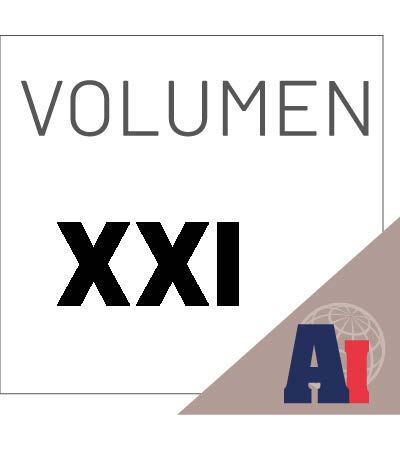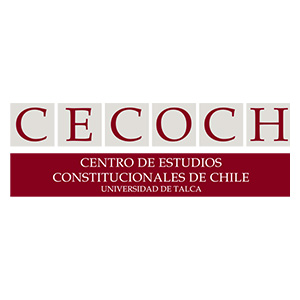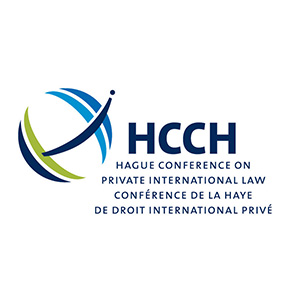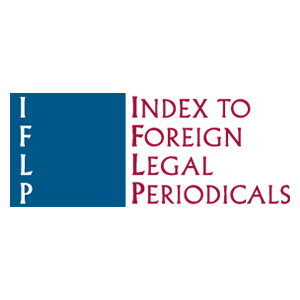The Interaction between Convergent and Divergent Approaches of Global Law in the Field of Business and Human Rights
Contenido principal del artículo
Resumen
Las nociones convergentes buscan contrarrestar la diferencia tratando al derecho global como un acuerdo colectivo implementado por arreglos jerárquicos. Por el contrario, las concepciones divergentes buscan gestionar la diferencia a través de la coordinación de distintos órdenes normativos. Existe un amplio debate sobre las discrepancias entre estos enfoques, pero poco se ha dicho sobre sus afinidades. Así, el propósito de este texto es analizar ambas visiones, utilizando el campo de las empresas y los derechos humanos como caso de estudio. Al hacerlo, demostraremos que las nociones convergentes y divergentes son compatibles y capaces de interactuar en beneficio recíproco, estableciendo relaciones de aprendizaje, man-teniendo sus propias condiciones de existencia y colaborando en conjunto para el logro de objetivos comunes.
Detalles del artículo
Citas
Alston, Philip, “The Not-A-Cat Syndrome: Can the International Human Rights Regime Accommodate Non-State Actors?”, in Alston, Philip (ed.), Non-State Actors and Human Rights, Oxford, Oxford University Press, 2005.
Alston, Philip and Goodman, Ryan, International Human Rights, Oxford, Oxford University Press, 2013.
Bilchitz, David, “Introduction: Putting Flesh on the Bone”, in Deva, Surya and Bilchitz, David (eds.), Building a Treaty on Business and Human Rights: Context and Contours, Cambridge, Cambridge University Press, 2017.
Bodansky, Daniel, “Climate Change: Transnational Legal Order or Disor¬der?”, in Halliday, Terrence and Shaffer, Gregory (eds.), Transnational Legal Orders, Cambridge, Cambridge University Press, 2015.
Brunnée, Jutta and Toope, Stephen, Legitimacy and Legality in International Law: An Interactional Account, Cambridge, Cambridge University Press, 2010.
Búrca, Gráinne de, “Experimentalism and the Limits of Uploading: The EU and the UN Disability Convention”, in Zeitlin, Jonathan (ed.), Extending Experimentalist Governance? The European Union and Transnational Regulation, Oxford, Oxford University Press, 2015.
Búrca, Gráinne de et al., “New Modes of Pluralist Global Governance”, New York University Journal of International Law and Politics, New York, vol. 45, no. 1, 2013.
Business and Human Rights Resource Centre, “UN Intergovernmental Working Group on Proposed Treaty”, 2020, available at: https://www. business-humanrights.org/en/un-intergovt-working-group-on-proposed-treaty.
Choudhury, Barnali, “Balancing Soft and Hard Law for Business and Hu¬man Rights”, International and Comparative Law Quarterly, Cambridge, vol. 67, no. 4, 2018.
Deva, Surya, “Scope of the Proposed Business and Human Rights Treaty”, in Deva, Surya and Bilchitz, David (eds.), Building a Treaty on Business and Human Rights: Context and Contours, Cambridge, Cambridge University Press, 2017.
Deva, Surya and Bilchitz, David (eds.), Building a Treaty on Business and Hu¬man Rights: Context and Contours, Cambridge, Cambridge University Press, 2017.
Klabbers, Jan and Trommer, Silke, “Peaceful Coexistence: Normative Plu¬ralism in International Law”, in Klabbers, Jan and Piiparinen, Touko (eds.), Normative Pluralism and International Law: Exploring Global Governan¬ce, Cambridge, Cambridge University Press, 2013.
Krisch, Nico, “Pluralism in Postnational Risk Regulation: The Dispute over GMOs and Trade”, Transnational Legal Theory, London, vol. 1, 2010.
Melish, Tara, “Putting Human Rights Back into the UNGP on Business and Human Rights: Shifting Frames and Embedding Participation Rights”, in Rodríguez Garavito, César (ed.), Business and Human Rights: Beyond the End of the Beginning, Cambridge, Cambridge University Press, 2017.
Nolan, Justine, “A Business and Human Rights Treaty”, in Baumann-Pauly, Dorothée and Nolan, Justine (eds.), Business and Human Rights: From Prin¬ciples to Practice, Melbourne, Routledge, 2016.
Nollkaemper, Andre, “Inside or Out: Two Types of International Legal Plu¬ralism”, in Klabbers, Jan and Piiparinen, Touko (eds.), Normative Plura¬lism and International Law: Exploring Global Governance, Cambridge, Cam¬bridge University Press, 2013.
Parker, Christine and Howe, John, “Ruggie’s Diplomatic Project and its Missing Regulatory Infrastructure”, in Mares, Radu (ed.), The UN Gui¬ding Principles on Business and Human Rights, Leiden, Martinus Nijhoff Pu¬blishers, 2012.
Rodríguez Garavito, César, “Business and Human Rights: Beyond the End of the Beginning”, in Rodríguez Garavito, César (ed.), Business and Hu¬man Rights: Beyond the End of the Beginning, Cambridge, Cambridge Univer¬sity Press, 2017.
Rodríguez Garavito, César, “The Future of Human Rights: From Gate¬keeping to Symbiosis”, SUR International Journal on Human Rights, São Pau¬lo, vol. 11, no. 20, 2014.
Ruggie, John Gerard, “Global Governance and New Governance Theory: Lessons from Business and Human Rights”, Global Governance, Boston, vol. 20, 2014.
Ruggie, John Gerard, “Hierarchy or Ecosystem? Regulating Human Rights Risks of Multinational Enterprises”, in Rodríguez Garavito, César (ed.), Business and Human Rights: Beyond the End of the Beginning, Cambridge, Cam¬bridge University Press, 2017.
Ruggie, John Gerard, Just Business: Multinational Corporations and Human Rights, New York, Norton and Company, 2013.
Simmons, Penelope, “The Value-Added of a Treaty to Regulate Transnational Corporations and Other Business Enterprises”, in Deva, Surya and Bil¬chitz, David (eds.), Building a Treaty on Business and Human Rights: Context and Contours, Cambridge, Cambridge University Press, 2017.
UNWorking Groupon Business and Human Rights, “Revised Draft of the Legally Binding Instrument to Regulate International Human Rights Law, the Activities of Transnational Corporations and Other Business En-terprises”, 2019, available at: https://www.ohchr.org/Documents/HRBodies/ HRCouncil/WGTransCorp/OEIGWG_RevisedDraft_LBI.pdf.
United Nations, “Global Compact”, 2020, available at: https://www.ungl obalcompact.org/.
United Nations, General Assembly, “Fragmentation of International Law: Difficulties Arising from the Diversification and Expansion of International Law”, Report of the Study Group of the International Law Commis¬sion, A/CN.4/L.682, 13 April 2006.
Walker, Neil, Intimations of Global Law, Cambridge, Cambridge University Press, 2014.
Weissbrodt, David and Kruger, Muria, “Human Rights Responsibilities of Business as Non-State Actors”, in Alston, Philip (ed.), Non-State Actors and Human Rights, Oxford, Oxford University Press, 2005.

























